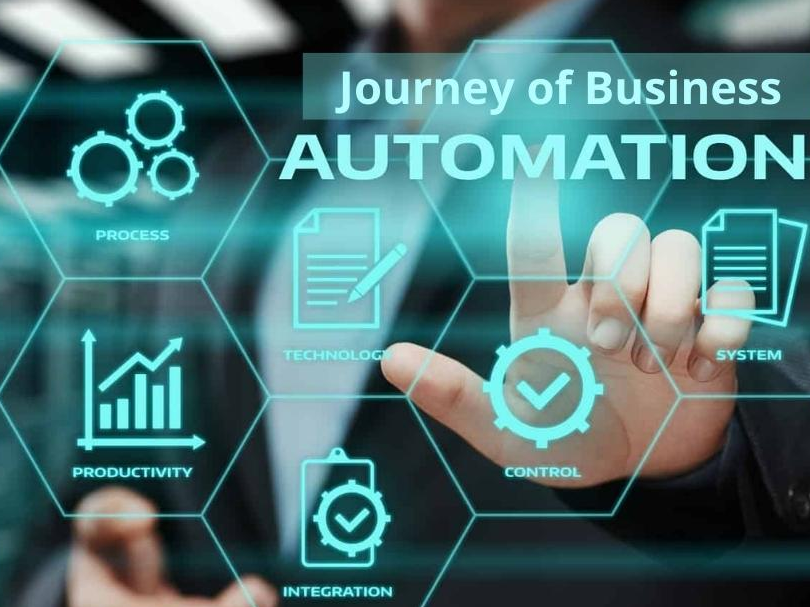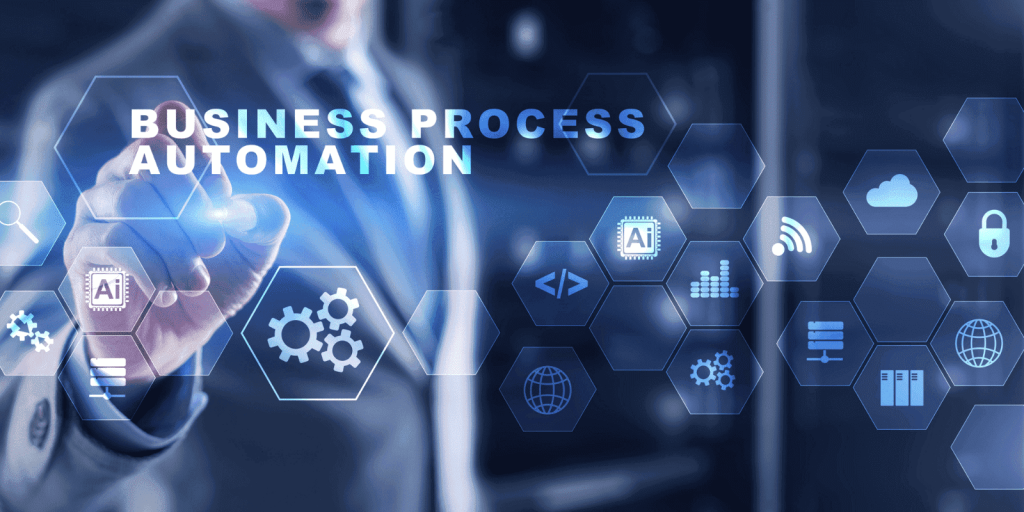Artificial Intelligence (AI) has become a game-changer in today’s rapidly evolving business landscape. From automating routine tasks to offering predictive insights, AI is revolutionizing how businesses operate. This technological marvel not only boosts efficiency but also enables organizations to scale and adapt to changing market demands. This article explores how AI is transforming business automation, its benefits, challenges, and real-world applications.
What is AI for Business Automation?
AI for business automation involves the use of artificial intelligence technologies to perform tasks traditionally handled by humans. These tasks range from simple data entry to complex decision-making processes. By leveraging machine learning, natural language processing (NLP), and robotics, AI helps businesses automate repetitive tasks, reduce human error, and focus on more strategic initiatives.
Key Components of AI for Automation:
- Machine Learning (ML): Enables systems to learn and improve from experience without explicit programming.
- Natural Language Processing (NLP): Allows machines to understand and respond to human language.
- Robotic Process Automation (RPA): Automates mundane, repetitive tasks like data entry and processing.
- Predictive Analytics: Uses historical data to predict future outcomes, helping businesses make informed decisions.
Benefits of AI in Business Automation
The use of AI in business automation offers a multitude of benefits that go beyond just cost savings. It transforms the way companies operate, making processes more efficient and scalable. Here are some of the key advantages:
Increased Efficiency and Productivity
AI systems can process vast amounts of data far quicker than humans, which results in increased efficiency and productivity. Tasks that once took hours or days can now be completed in minutes or seconds, freeing up employees to focus on more value-added activities.
Cost Reduction
By automating repetitive and time-consuming tasks, businesses can significantly cut down on labor costs. AI-powered automation also reduces errors, which can be costly to fix, leading to further savings.
Enhanced Customer Experience
AI-driven automation tools like chatbots and virtual assistants provide real-time responses to customer inquiries, enhancing the customer experience. They offer personalized support, which can lead to higher customer satisfaction and loyalty.
Better Decision Making
AI can analyze large datasets and extract actionable insights, enabling businesses to make better, data-driven decisions. Predictive analytics helps companies foresee market trends and consumer behavior, leading to more effective business strategies.
Scalability
AI allows businesses to scale their operations without proportionally increasing labor costs. As companies grow, AI can handle increased workloads with ease, ensuring smooth operation and continuity.
Challenges of Implementing AI for Automation
While the benefits are plentiful, implementing AI for business automation is not without challenges. Companies must carefully consider these hurdles and develop strategies to overcome them.
High Initial Costs
The initial investment in AI technology can be high, especially for small to medium-sized businesses. This includes the cost of software, hardware, and the necessary expertise to implement and maintain AI systems.
Data Privacy and Security
AI systems require vast amounts of data to function effectively. Ensuring the security of this data and complying with privacy regulations like GDPR is a significant challenge for businesses. A data breach could have severe financial and reputational repercussions.
Workforce Displacement
One of the major concerns surrounding AI is its potential to displace human workers. As AI for Business Automation takes over repetitive tasks, some jobs may become obsolete, leading to layoffs and unemployment in certain sectors. Companies will need to reskill their workforce to take on new roles that complement AI systems.
Integration with Existing Systems
Integrating AI into existing business processes can be a complex and time-consuming task. Legacy systems may not be compatible with AI technologies, requiring substantial upgrades or replacements.
Ethical Concerns
AI systems are only as good as the data they are trained on. If this data is biased, it can lead to unethical decisions, especially in areas like hiring or customer service. Ensuring that AI operates fairly and ethically is an ongoing challenge for businesses.
Real-world Applications of AI for Business Automation
AI for business automation is not just a theoretical concept; it’s already being applied across various industries. Here are some of the most prominent use cases:
Customer Service Automation
Many companies use AI-powered chatbots and virtual assistants to handle customer inquiries, complaints, and support tickets. These systems provide real-time assistance, which improves response times and customer satisfaction. For example, companies like Amazon and Netflix use AI to provide personalized recommendations and customer support.

- Supply Chain and Logistics
AI is transforming supply chain management by automating tasks such as inventory management, demand forecasting, and logistics. AI algorithms can predict stock shortages and automatically place orders, ensuring that businesses always have the necessary inventory on hand. Additionally, AI-powered robots are increasingly being used in warehouses to automate the picking, packing, and shipping of goods.
- Financial Services
AI is widely used in the financial sector for tasks such as fraud detection, risk management, and customer onboarding. Machine learning algorithms can analyze transactional data to identify unusual patterns, helping to prevent fraudulent activities. AI is also used to automate the approval process for loans and insurance claims, reducing processing times and improving accuracy.
- Human Resources
In HR, AI automates tasks like resume screening, candidate selection, and employee onboarding. AI-powered platforms can analyze resumes and job descriptions to match the best candidates with open positions. AI can also be used to monitor employee performance and provide personalized development plans.
- Marketing Automation
AI helps companies optimize their marketing strategies by automating tasks such as email campaigns, social media management, and content creation. AI can analyze customer behavior and preferences to deliver personalized marketing messages, leading to higher engagement and conversion rates.
Future Trends in AI and Business Automation
The future of AI in business automation looks promising, with advancements in technology paving the way for even more sophisticated applications. Here are some trends to watch out for:
- AI-Driven Decision Making
As AI becomes more advanced, it will take on a greater role in decision-making processes. Companies will increasingly rely on AI to provide predictive insights and recommend actions based on data analysis.
- Hyperautomation
Hyperautomation refers to the use of AI, machine learning, and robotic process automation to automate as many business processes as possible. This trend is expected to gain momentum as businesses look for ways to optimize every aspect of their operations.
- AI in Cybersecurity
As cyber threats become more sophisticated, businesses will turn to AI to enhance their cybersecurity measures. AI-powered systems can detect and respond to security breaches in real-time, minimizing the risk of data loss and theft.
AI and the Internet of Things (IoT)
The integration of AI and IoT will revolutionize industries like manufacturing and healthcare. AI will analyze data from IoT devices to optimize processes, improve safety, and reduce operational costs.
Conclusion
AI for business automation is no longer a futuristic concept; it’s a reality that is transforming industries across the board. From enhancing productivity and customer satisfaction to reducing costs and enabling scalability, AI offers immense potential for businesses of all sizes. However, companies must navigate challenges such as high initial costs, data security, and workforce displacement to fully capitalize on AI’s benefits.
As AI technology continues to evolve, the possibilities for business automation will expand, offering even more opportunities for innovation and growth. Businesses that embrace AI now will be better positioned to thrive in the competitive landscape of the future.





